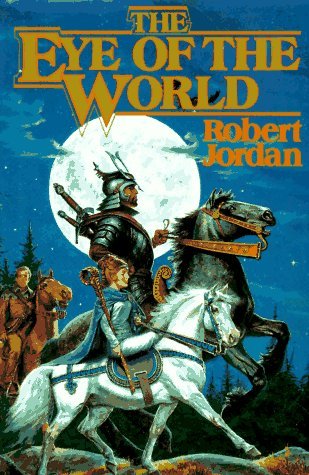A Short Ride on the Wheel of Time
“The Wheel of Time turns, and Ages come and pass, leaving memories that become legend. Legend fades to myth, and even myth is long forgotten when the Age that gave it birth comes again.” – The Eye of the World
Modern fantasy[1] is attributed almost exclusively to J.R.R. Tolkien’s Lord of the Rings trilogy, and rightly so. The three books laid the groundwork for the mythic traditions that would become high fantasy, as well as bringing the traditional quest narrative into an accessible light inspired by the epic poetry of Homer[2]. Given weight by the heroic structures of Joseph Campbell, the books were Tolkien’s attempt at crafting Germanic myth for the British isles beyond the King Arthur legends, diluted and adapted through many different versions, ranging from Thomas Malory to T. H. White, and later on from Mary Stewart to Marion Zimmer Bradley to Clive Owen. In the process, Tolkien also brought about the creation of dozens of other epic fantasy series of varying quality and number.[3]
Epic fantasy truly came of age with the 1977 publication of Terry Brook’s The Sword of Shannara. A fantastically accessible read, the book spawned the massive Shannara series, eventually turning from a traditionally fantastical world into a rumination on mutation and magic in post-apocalyptic America. However, anyone reading The Sword of Shannara cannot help but notice the more-than-passing resemblance to the plot structure of Lord of the Rings. To sum up, a small child/hobbit/underdog discovers they alone have the means to save the world from an evil dark lord (singular). With the help of a rag-tag band of misfits/warriors/dwarves/strippers (if you’ve been to the burlesque lately), they travel deep into a dangerous world, narrowly thwarting the complete destruction of their beloved, country-style homesteads, usually at the cost of thousands of anonymous soldiers spent during an epic battle sequence that might have been prevented if the small child/hobbit/underdog had HURRIED THE FRACK UP instead of ruminating over the lapse between good and evil in mortal beings for 100 pages while lounging around in an Elvish/Dwarvish/crypto-humanoid paradise.
But I may be getting ahead of myself.

